Congressional Leaders to Get Classified Briefings on Russia Probe
House and Senate lawmakers from both parties are set to meet with top intelligence officials for classified briefings as President Trump intensifies his attacks on Robert Mueller's investigation.WASHINGTON — House and Senate lawmakers from both parties are set to meet with top intelligence officials Thursday for classified briefings as President Donald Trump raises new suspicions about the federal investigation into his 2016 campaign.
Trump is calling his newest attempt at discrediting special counsel Robert Mueller’s Russia investigation “spygate.” In recent days, he has been zeroing in on — and at times embellishing — reports that a longtime U.S. government informant approached members of his campaign during the 2016 presidential election in a possible bid to glean intelligence on Russian efforts to sway the election.
Trump intensified his attacks Thursday, tweeting that it was “starting to look like one of the biggest political scandals in U.S. history.”
Trump’s broadsides set the stage for the unusual decision by the White House to arrange a briefing about classified documents that will be attended by three Republican House members, including House Speaker Paul Ryan.
Ryan downplayed Trump’s attacks saying he doesn’t worry about any lasting damage to the agencies. “We have strong institutions in this country. They’re going to endure any kind of test,” Ryan told reporters Thursday.
After Democratic complaints and negotiations that went into the evening Wednesday, the Justice Department said it would hold a second classified briefing the same day and invite the Gang of Eight — a group that consists of the top Republicans and Democrats in each chamber and the top Republicans and Democrats on the House and Senate intelligence committees.
There were two other late additions to the list — White House chief of staff John Kelly and Deputy Attorney General Rod Rosenstein. White House press secretary Sarah Huckabee Sanders had originally said no one from the White House would attend the briefing, at which the investigation into Trump’s campaign will be discussed.
Rosenstein appointed special counsel Robert Mueller, who is leading the Russia investigation, and is frequently criticized by Trump.
Two House lawmakers — Intelligence Committee Chairman Devin Nunes and Oversight and Government Reform Chairman Trey Gowdy — were invited to attend both briefings, as were Kelly, Rosenstein, FBI Director Christopher Wray and National Intelligence Director Dan Coats, according to the Justice Department.
All were invited to the second briefing, as well, plus Ryan, Senate Majority Leader Mitch McConnell, Senate Democratic leader Chuck Schumer and House Democratic leader Nancy Pelosi. Senate Intelligence Committee Chairman Richard Burr was also invited, along with the top Democrat on the Senate intelligence panel, Sen. Mark Warner, and the top Democrat on the House intelligence panel, Rep. Adam Schiff.
The first briefing will take place at the Justice Department, the department said. The second briefing will take place on Capitol Hill, according to three people familiar with the meeting plans who were not authorized to publicly discuss them and spoke to The Associated Press on condition of anonymity.
Ryan said he told the administration that whatever briefing is held for Republicans should also be given to Democrats.
Details about the meetings continued to shift Thursday morning. A spokeswoman for Ryan, AshLee Strong, said he would attend the first meeting instead of the second one. Ryan is attending fundraisers later Thursday in Houston. “They’re the same briefing,” he said. And Schumer called for the first meeting to be canceled.
“What is the point of the separate briefing if not to cause partisan trouble?” Schumer said in a statement.
Nunes, an ardent Trump supporter, had originally requested the information on an FBI source in the Russia investigation. And Trump took up the cause as the White House tried to combat the threat posed by Mueller’s investigation into Russian interference and possible obstruction of justice.
Trump escalated his efforts to discredit the investigation Wednesday, tweeting: “Look how things have turned around on the Criminal Deep State. They go after Phony Collusion with Russia, a made up Scam, and end up getting caught in a major SPY scandal the likes of which this country may never have seen before! What goes around, comes around!”
It remained unclear what, if any, spying was done. The White House gave no evidence to support Trump’s claim that the Obama administration was trying to spy on his 2016 campaign for political reasons. It’s long been known that the FBI was looking into Russian meddling during the campaign and that part of that inquiry touched on the Trump campaign’s contacts with Russian figures. Mueller later took over the investigation when he was appointed in May 2017.
Trump has told confidants in recent days that the revelation of an informant was potential evidence that the upper echelon of federal law enforcement had conspired against him, according to the three people who spoke to the AP on condition of anonymity. Trump told one ally this week that he wanted “to brand” the informant a “spy,” believing the more nefarious term would resonate more in the media and with the public.
As Republicans worked to show a Justice Department conspiracy against Trump, Democrats and former law enforcement officials defended the agency. Former FBI Director James Comey, who was fired by Trump last year, tweeted Wednesday that the agency’s use of secret informants was “tightly regulated and essential to protecting the country.”
“Attacks on the FBI and lying about its work will do lasting damage to our country,” Comey tweeted. “How will Republicans explain this to their grandchildren?”
In an interview airing Thursday on “Fox & Friends,” Trump referred to Comey as one of the “rotten apples” in FBI leadership.
“How is he going to explain to his grandchildren all of the lies, the deceit, all of the problems he’s caused for this country?” Trump asked.
The back and forth between Congress and the Justice Department over the Nunes request — one of many over the course of the Russia investigation — has simmered for weeks.
The department originally rejected Nunes’ appeal, writing in a letter in April that his request for information “regarding a specific individual” could have severe consequences, including potential loss of human life. Negotiations restarted when Trump demanded Sunday that the Justice Department investigate “whether or not the FBI/DOJ infiltrated or surveilled the Trump Campaign for Political Purposes.”
The Justice Department agreed to expand an internal investigation to determine whether there was any politically motivated surveillance. And the White House said Kelly would organize the meeting with House lawmakers to discuss the documents.
___
Associated Press writer Jill Colvin contributed to this report.
Your support matters…Independent journalism is under threat and overshadowed by heavily funded mainstream media.
You can help level the playing field. Become a member.
Your tax-deductible contribution keeps us digging beneath the headlines to give you thought-provoking, investigative reporting and analysis that unearths what's really happening- without compromise.
Give today to support our courageous, independent journalists.
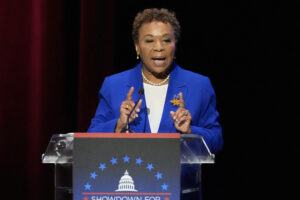
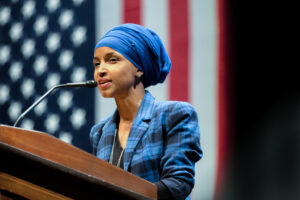
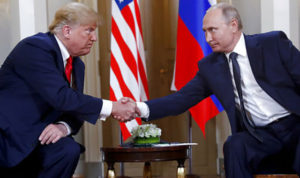
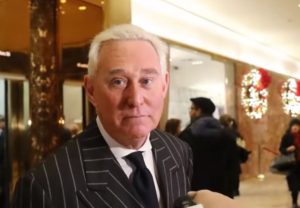
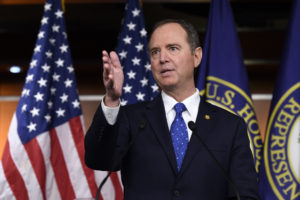
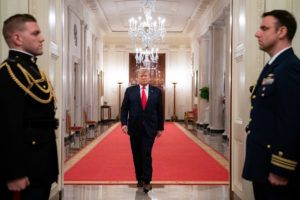
You need to be a supporter to comment.
There are currently no responses to this article.
Be the first to respond.